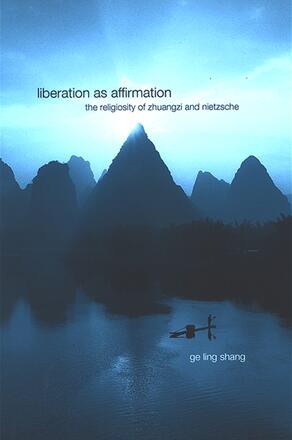
Liberation as Affirmation
The Religiosity of Zhuangzi and Nietzsche
Alternative formats available from:
Uses the concept of religiosity to challenge traditional views of Nietzsche and Zhuangzi as nihilistic and anti-religious.
Description
In this book, author Ge Ling Shang provides a systematic comparison of original texts by Zhuangzi (fourth century BCE) and Nietzsche (1846–1900), under the rubric of religiosity, to challenge those who have customarily relegated both thinkers to relativism, nihilism, escapism, pessimism, or anti-religion. Shang closely examines Zhuangzi's and Nietzsche's respective critiques of metaphysics, morals, language, knowledge, and humanity in general and proposes a conception of the philosophical outlooks of Zhuangzi and Nietzsche as complementary. In the creative and vital spirit of Nietzsche, as in the tranquil and inward spirit of Zhuangzi, Shang argues that a surprisingly similar vision and aspiration toward human liberation and freedom exists—one in which spiritual transformation is possible by religiously affirming life in this world as sacred and divine.
Ge Ling Shang is Associate Professor of Philosophy at Grand Valley State University.
Reviews
"Ge Ling Shang's comparative study of Zhuangzi and Nietzsche provides a unique perspective on the deep affinities shared by two philosophers separated by an immense span of time and space … Liberation as Affirmation combines clear exposition and precise textual analysis with a striking internal coherence based on the central theme of religiosity. " — Symposium
"This book makes a strong case not only for reading Zhuangzi and Nietzsche as religious thinkers, but also for seeing their religious visions as similarly oriented. The suggestion that thinkers with some affinity for the goals of poststructuralism could have a less purely negative approach is significant and interesting. " — Kathleen M. Higgins, coeditor of From Africa to Zen: An Invitation to World Philosophy, Second Edition
"This book brings these two thinkers into the most extended dialogue ever attempted. It fills a need and highlights the significance of this encounter. " — Brook Ziporyn, author of The Penumbra Unbound: The Neo-Taoist Philosophy of Guo Xiang